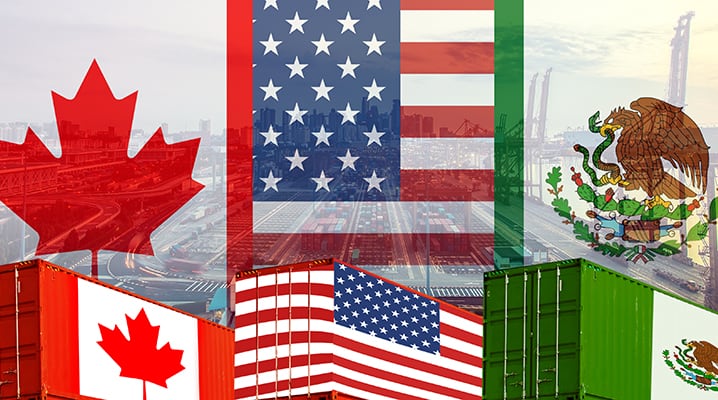USMCA: Steppingstone to NAU

The United States-Mexico-Canada Agreement (USMCA) was approved by the House by 385-41 on December 19, 2019, and by the Senate by 89-10 on January 16, 2020. It officially came into force on July 1, 2020. While NAFTA set the foundation to integrate the three North American countries, the USMCA is moving us closer to a full-blown EU-style North American Union.
We’ve changed the name of our action project from “Stop the USMCA” to “Get US Out! of the USMCA.” However, the first order of business is to educate Americans on the need to “Stop the North American Union.”
Unaccountable Entangling Bureaucracy
Chapter 30 of the USMCA/NAFTA 2.0 establishes a new governing bureaucracy – an unelected, unaccountable Free Trade Commission overseeing various lower regional committees. Much like the TPP Commission, the Free Trade Commission can make changes to the USMCA without the consent of Congress. This completely undermines Congress’ Constitutional Article I, Section 8 power to regulate trade with foreign nations.
Consistent with other globalist schemes, the USMCA follows the “rules-based system” of submission to international bodies such as the World Trade Organization, International Labor Organization, a plethora of United Nations conventions including the Law of Sea Treaty (which the U.S. has never ratified), and the furtherance of “sustainable development,” which is mentioned no less than six times in the environment chapter.
Part of a World Government Build-up
The USMCA is part of a startling, but purposeful, strategy used by the globalist elites to integrate individual nations into regional unions with overarching unaccountable bureaucracy. These regional unions help to create a “new world order” that is being organized under the United Nations. The UN’s Commission on Global Governance wrote in 1995 “regional cooperation and integration should be seen as an important and integral part of a balanced system of global governance.”
Existing unions include the European Union, African Union, Union of South America, Eurasian Economic Union, and more. We’ve stopped similar trade deals in the past, including the Free Trade Area of the Americas, the Security and Prosperity Partnership, the TPP, and the TTIP.


